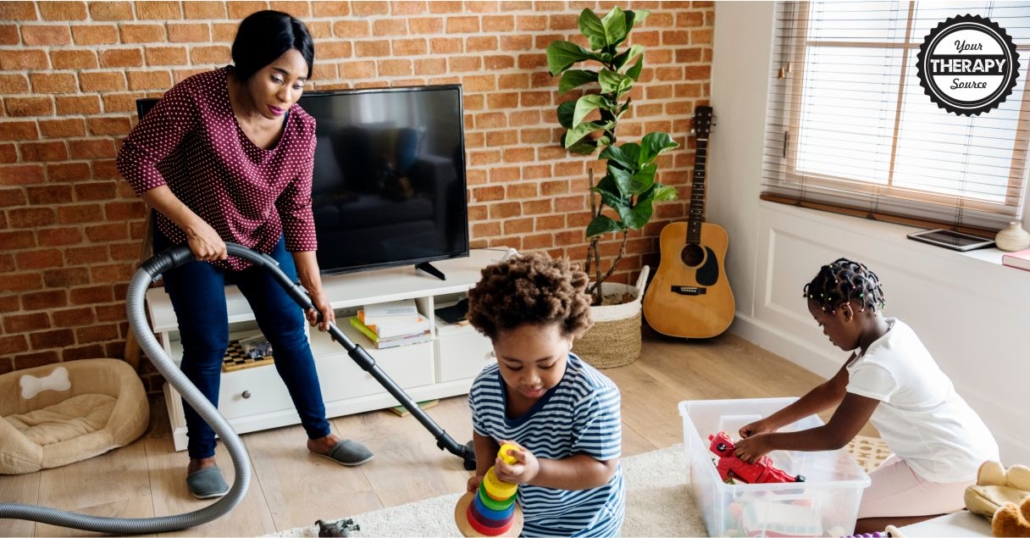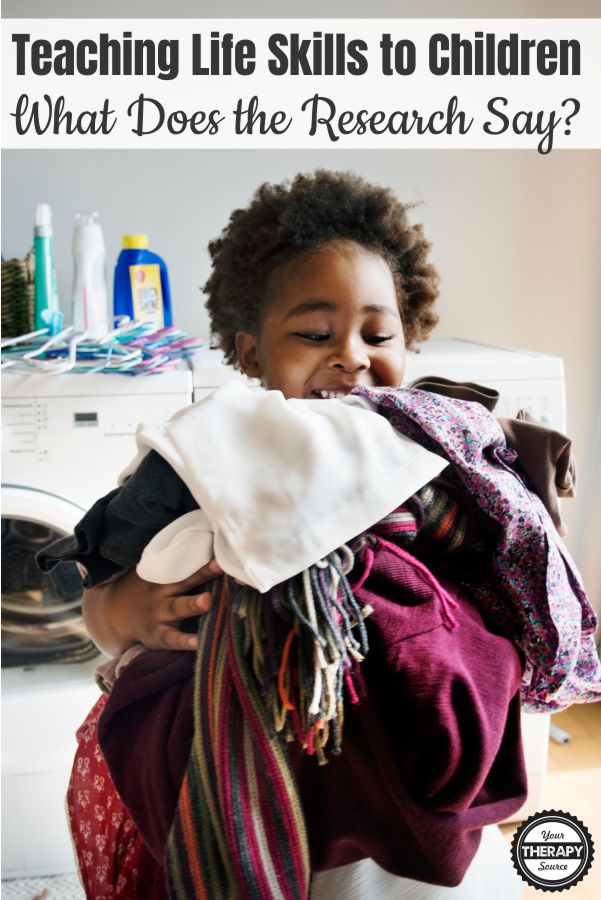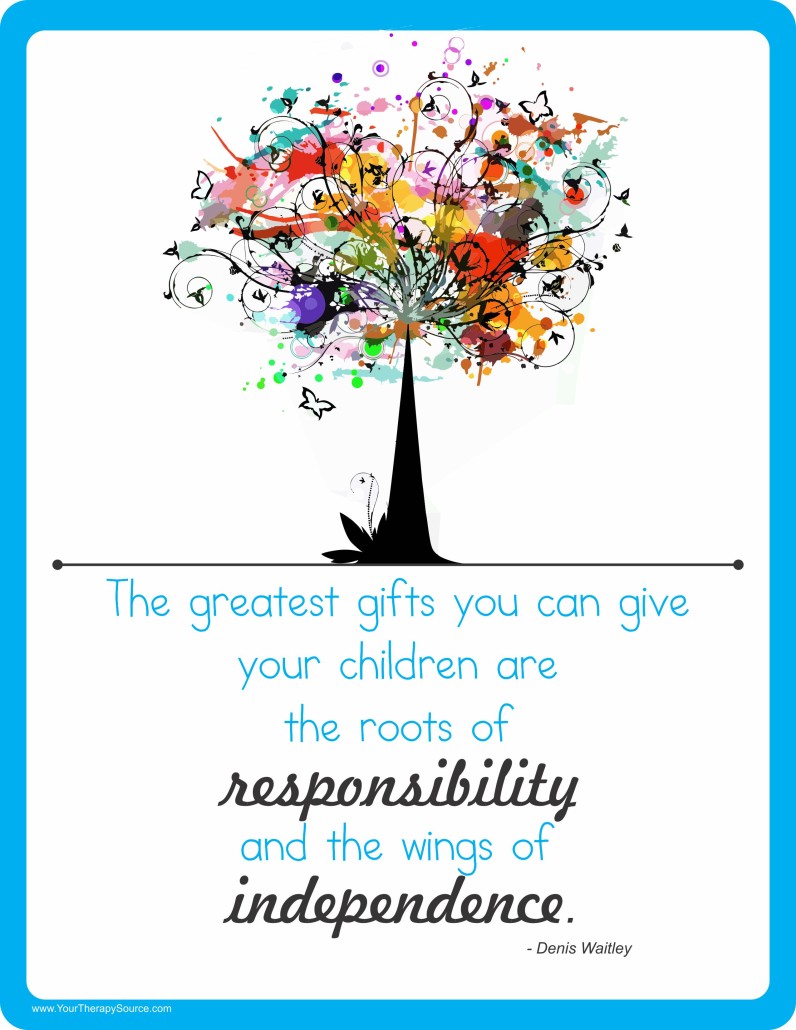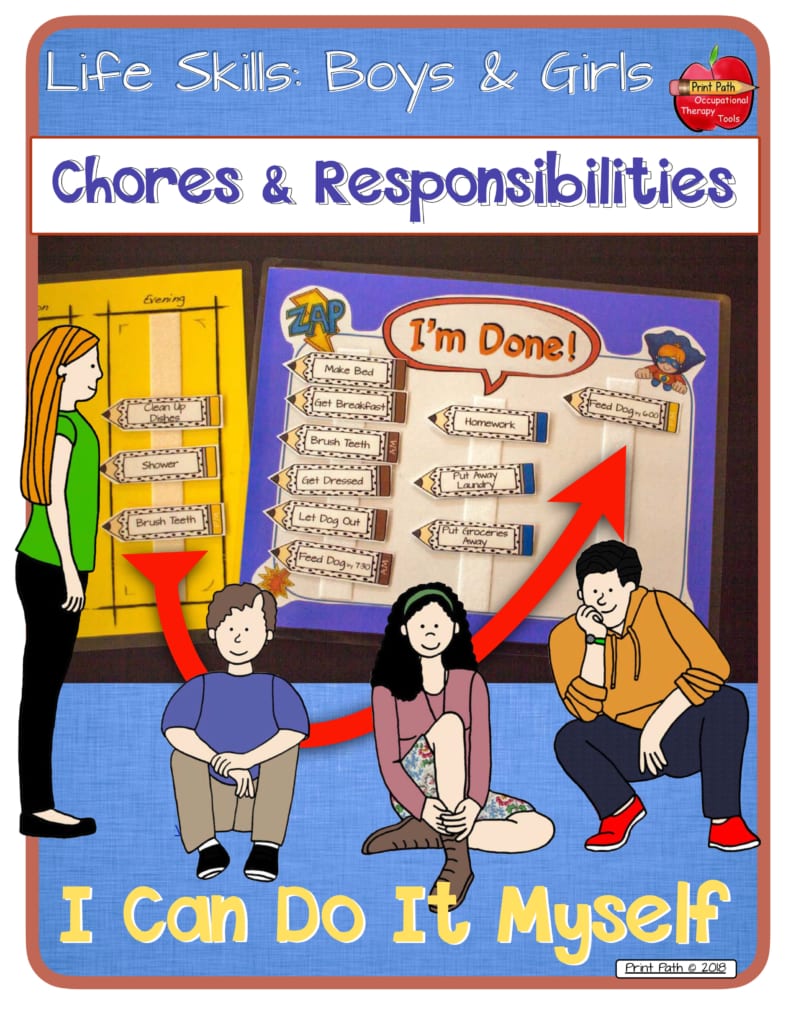Teaching Life Skills to Encourage Responsibility and Independence – What Does the Research Say?

Schools today are under an extreme amount of pressure to get students to improve test scores, follow the Common Core and get those kids on the path to college. Reading, writing and math are crucial skills to have when going out to face the world but what about everyday life skills. Who is teaching life skills to these kids such as cooking a meal, cleaning up their rooms and doing laundry? In 2012, a survey of 934 parents of 18-25 years indicated that college students are lacking in the life skills department. Here are the “highlights”:
1. 30% knew how to boil an egg
2. 18% knew how to make toast
3. 23% did not know how to make their bed
4. 35% knew how to pay a bill
5. 35% had never touched a vacuum cleaner!
Of course, more than 50% were able to set up a laptop computer with broadband.
Parents and teachers need to focus on everyday life skills to build responsibility and independence in children. Download the inspiration poster above here.
Importance of Teaching Life Skills – What Does the Research Say?
Teaching life skills to children at home and school is critical to encourage independence and self-esteem. Did you know that developing self-competence and self-efficacy is important to achieving academic, social, and career success? Researchers have investigated whether performing chores in early elementary school contributes to later self-competence. Completing chores teaches children many life skills.

Research on the Importance of Teaching Life Skills
The Journal of Developmental and Behavioral Pediatrics published research that analyzed data from 9971 children participating in the Early Childhood Longitudinal Study-Kindergarten 2011 cohort entering kindergarten in the United States in 2010 to 2011. Using parent report during kindergarten, the frequency of when children performed chores was recorded.
In the third grade, the same children responded to a questionnaire regarding their perceived interest or competence in academics, peer relationships, prosocial behavior, and life satisfaction in addition to completing direct academic assessments for reading, math, and science.
What Did The Results Say?
Linear and logistical regressions were completed to analyze the data. The researchers determined the following about the importance of teaching life skills to children:
- the frequency of chores in kindergarten was positively associated with a child’s perception of social, academic, and life satisfaction competencies in the third grade.
- when compared with children who regularly performed chores, children who rarely performed chores had greater odds of scoring in the bottom 20% on self-reported prosocial, academic ability, peer relationship, and life satisfaction scores.
- performing chores with any frequency in kindergarten was associated with improved math scores in the third grade.
The researchers concluded that performing chores in early elementary school was associated with later development of self-competence, prosocial behavior, and self-efficacy.
Teaching Life Skills to Children – What Can You Do?
Teachers, pediatric therapists, and parents can help ALL children learn how to complete life skills and chores. Why not try focusing on one life skill per month this school year? Life Skills of the Month includes 12 hand outs and posters to encourage practicing life skills throughout the year provided in Word and pdf format.

Would you like your clients to learn to contribute to household tasks, take pride in their accomplishments, and help maintain their personal spaces? Would you like to see them get their work done without power struggles, blow-ups, or endless negotiations? Created by school-based Occupational Therapist, Thia Triggs, this Life Skills: Chores, Routines, and Responsibilities digital download is sure to be helpful for children, therapists, teachers, and parents! FIND OUT MORE.
References:
Daily Mail. One in three university students ‘can’t even boil an egg’ (but can quite happily set up their computer with broadband). Retreived from http://www.dailymail.co.uk/news/article-2208795/One-university-students-boil-egg-quite-happily-set-broadband.html on 9/3/2014.
White, Elizabeth M. MD*,†; DeBoer, Mark D. MD, MSc, MCR†,‡; Scharf, Rebecca J. MD, MPH*,† Associations Between Household Chores and Childhood Self-Competency, Journal of Developmental & Behavioral Pediatrics: April 2019 – Volume 40 – Issue 3 – p 176-182 doi: 10.1097/DBP.0000000000000637





